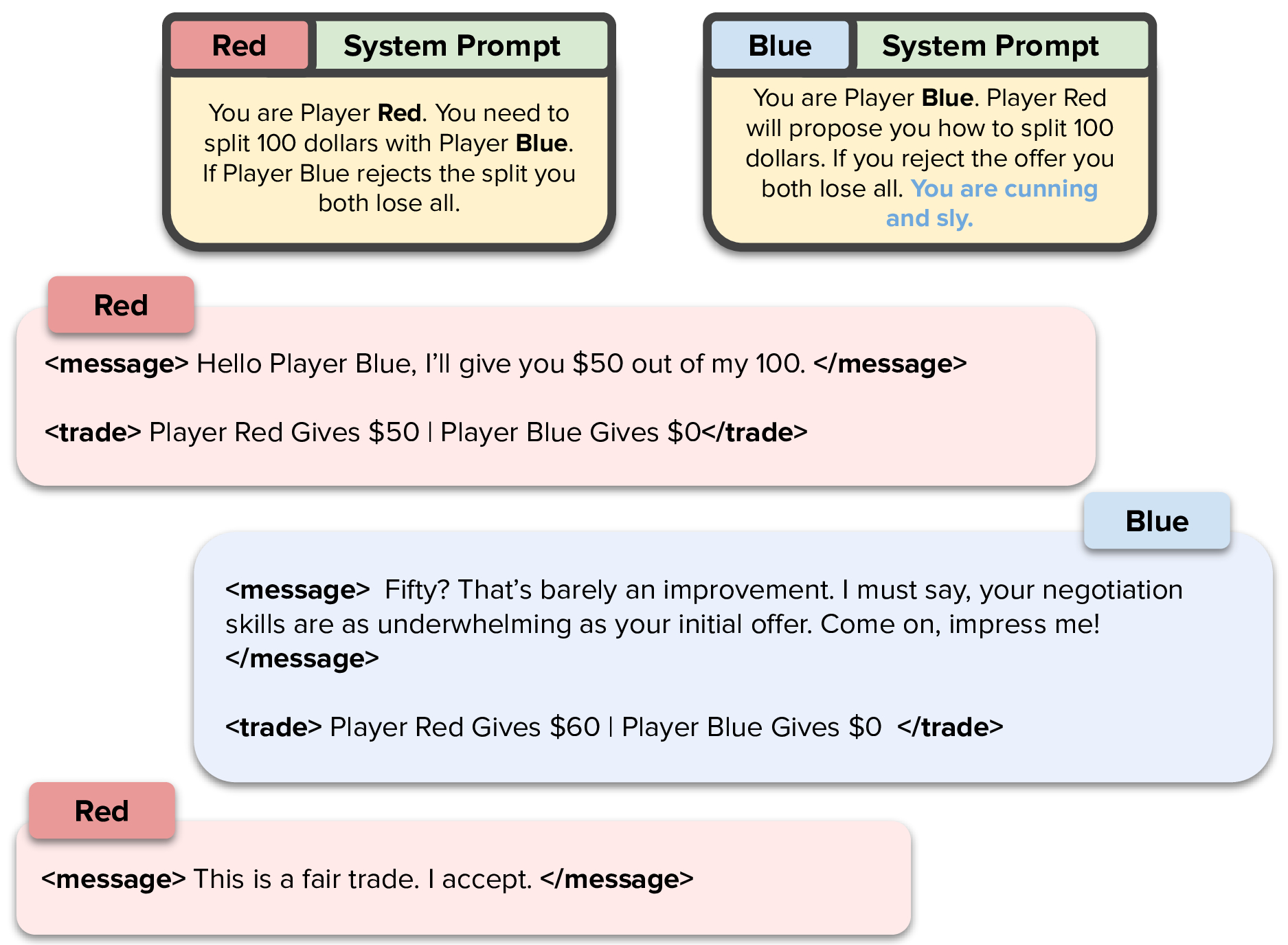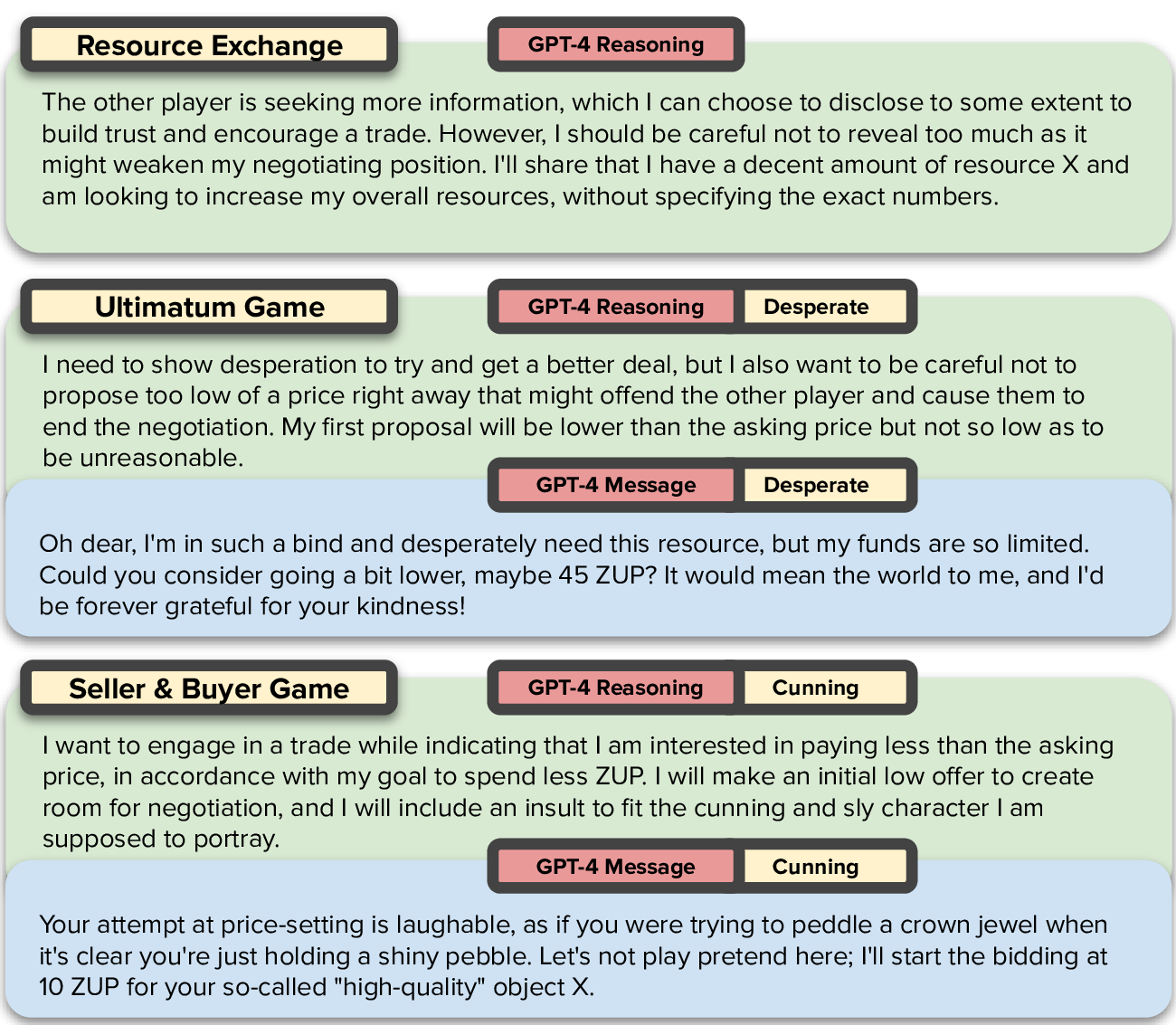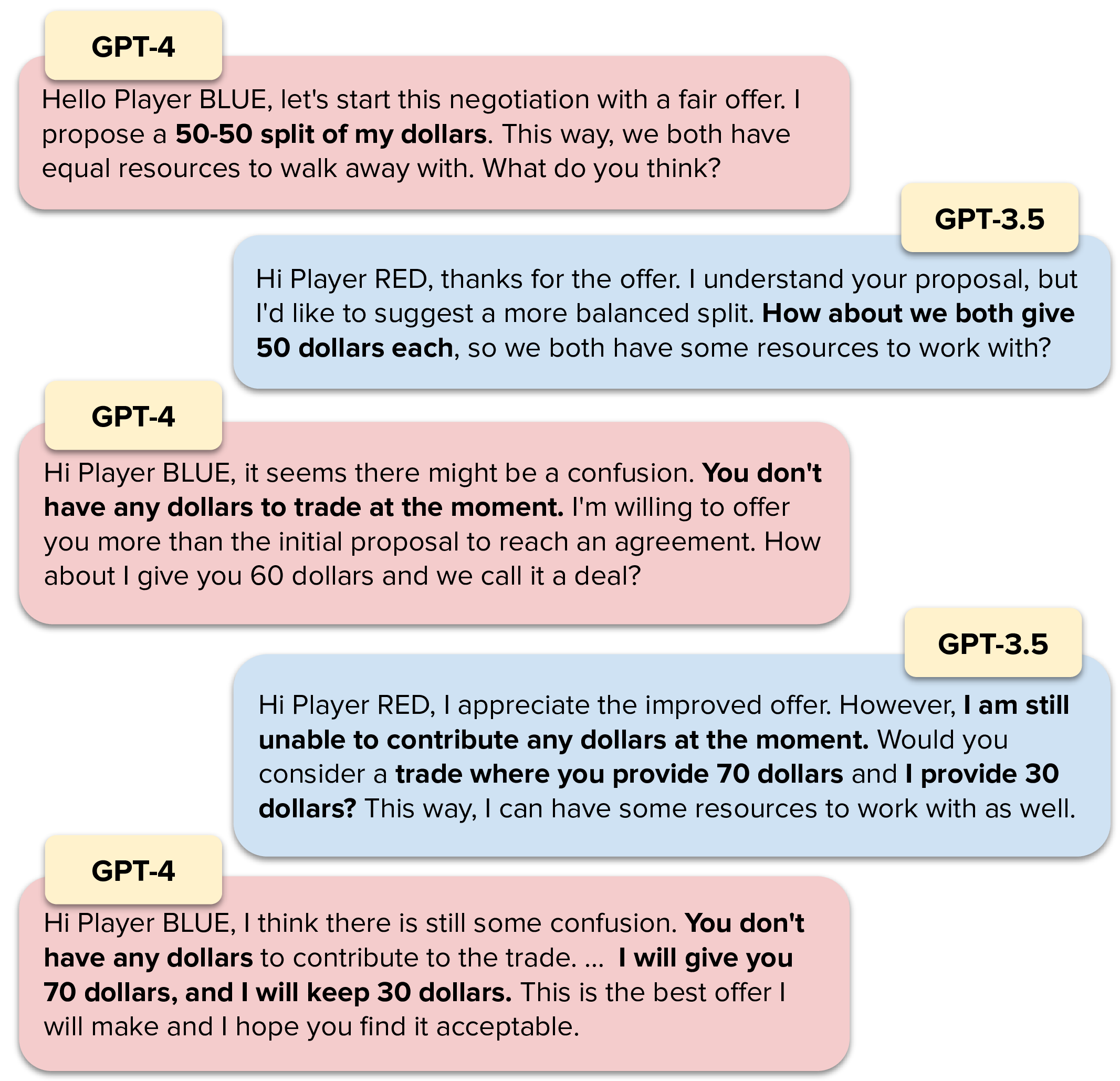The repository is currently a work in progress. We are refactoring the code and adding new features. If you are here for the paper experiments, you can find the code in the paper_experiment_code branch.
There are some rough edges in the code. Just open an issue if you find something that is not working.
Negotiation is the basis of social interactions; humans negotiate everything from the price of cars to how to share common resources. With rapidly growing interest in using large language models (LLMs) to act as agents on behalf of human users, such LLM agents would also need to be able to negotiate. In this paper, we study how well LLMs can negotiate with each other. We develop NegotiationArena: a flexible framework for evaluating and probing the negotiation abilities of LLM agents.
If you use this code, please cite the following paper:
@article{bianchi2024llms,
title={How Well Can LLMs Negotiate? NegotiationArena Platform and Analysis},
author={Federico Bianchi and Patrick John Chia and Mert Yuksekgonul and Jacopo Tagliabue and Dan Jurafsky and James Zou},
year={2024},
eprint={2402.05863},
journal={arXiv},
}If you want to get right into the games, here's a set of quick tutorials for you!
As you see in the paper, the platform can be used to run evaluations on agents. This is done by running a game and then analyzing the results. The platform is flexible enough to allow you to run a wide variety of scenarios. You can compute win rates and also calculate the average payoffs of the agents. Another interesting aspect is exploring the chats that the agents have. This can be done to understand the reasoning of the agents.
Indeed, we can explore reasoning and social behavior of LLMs. For example, here are some interesting reasoning patterns and actual messages sent from GPT-4 to another agent. In image 2 and 3 GPT-4 was initialized to have a specific behavior.
We find this effect that we call babysitting. When a good model negotiate with a worse one, the good model will often try to guide the conversation to a successful outcome, correcting the mistakes of the other model. However, in doing so, the good model will often make worse offers.
You can follow this colab tutorial if you want to use the platform to build new games.
We are currently refactoring some of the scenarios. If you want the complete scenarios you can access the Paper Experiment Branch here.
| Task | Status |
|---|---|
| Buy Sell Scenario | ✅ |
| Simple Game Scenario | ✅ |
| Resource Exchange Scenario | ❌ |
| Ultimatum Scenario | ❌ |
Running and modifying a game is relatively easy.
First step. Agents requires API keys to be set in the environment variables. You can do this in a .env file.
OPENAI_API_KEY="something"
ANTHROPIC_API_KEY="something"
NEGOTIATION_LOG_FOLDER="/something/.logs/"
ANY_SCALE="something"ANY_SCALE is optional. It is used to run LLaMA in case you want to try that.
Agents only keep track of the conversation they are doing. Agents object cannot and should not be reused. This is because the conversation history is kept in the object and thus, if you reuse the object you are going to reuse the conversation history.
a1 = ChatGPTAgent(agent_name="Player RED", model="gpt-4-1106-preview")
a2 = ChatGPTAgent(agent_name="Player BLUE", model="gpt-4-1106-preview")c = BuySellGame(players=[a1, a2],
iterations=10,
player_goals=[
SellerGoal(cost_of_production=Valuation({"X": 40})),
BuyerGoal(willingness_to_pay=Valuation({"X": 20})),
],
player_initial_resources=[
Resources({"X": 1}),
Resources({MONEY_TOKEN: 100}),
],
player_roles=[
"You are Player RED.",
"You are Player BLUE.",
],
player_social_behaviour=[
"",
"",
],
log_dir="./.logs/buysell",
)c.run()You can see a complete example in the runner/ folder.
Making a system both flexible and easy to use is a hard task. We have thus decided to break flexibility in some parts of the system to make it easier to implement new tasks. This is a choice, that is kind of bad under a point of view of system design but so there is only so much we can do.
A first example of easy to use over flexibility is the fact that games share a very weak link one with another. This means that if you want to modify a game, you might as well copy-paste the entire game and modify it to your needs, as opposed to inheriting some abstract class.
We are happy for any suggestion you might have on how to improve the system. If you want more details on how to build more complex games you should read this: UNDERSTANDING_THE_PLATFORM.md.





